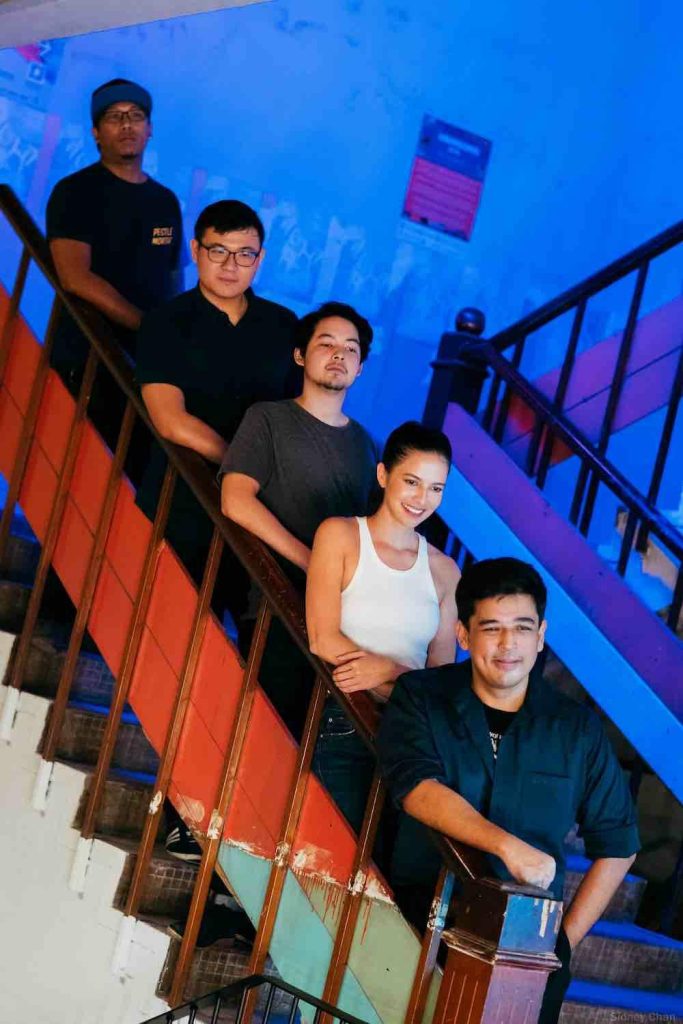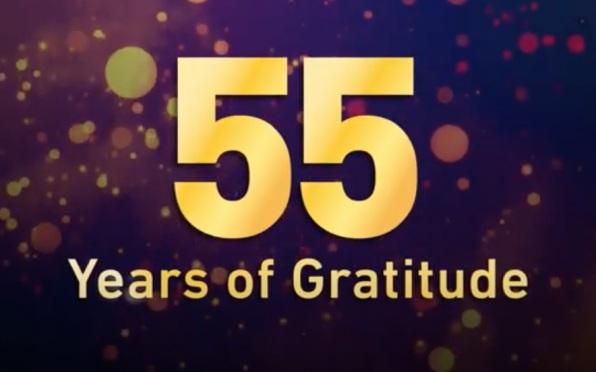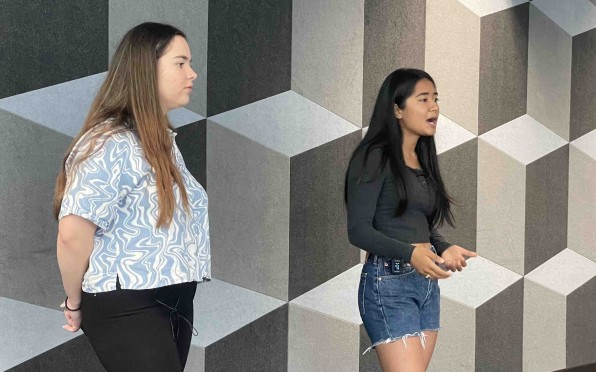Tony Pietra Arjuna ’96
“Surviving the Y2K apocalypse never prepared me for this pandemic.” Tony Pietra Arjuna (‘96) has a colorful way of describing the challenges for an indie film-maker during the Covid-19 pandemic that has disrupted his, and so many other, industries.
Tony is a true third culture kid (3CK) who studied at ISKL from Grade 5 until his sophomore year, before moving to our IASAS family school, Jakarta Intercultural School (JIS). With a love of history, humanities and theater, Tony graduated from Emerson College in 2000 with a Bachelor’s degree in Mass Communication.
Older members of the ISKL community may remember Tony by a different name. He says, “Faculty and friends remember me as Wilbur because I played the porky protagonist of Charlotte’s Web on stage.”
Completed before the pandemic, Tony’s award-winning neo-noir film, Shadowplay, includes 3CK themes and, in October 2020, won the Best Film, Best Director and three other categories in the Neo-South Independent Film Festival.
Tony shared his journey in film, including how ISKL helped to shape his career, with Lynette MacDonald, ISKL’s Director of Development and Alumni Engagement.

LM – How did you get into the Malaysian film industry…Where did you start out?
I began as an offline editor for TV commercials. I probably would have stayed with that if it weren’t for the late great Yasmin Ahmad. She was one of my clients and mentors. Editing was a comfort zone but my heart desired to direct films. Yasmin inspired me to pursue that dream.
LM – Shadowplay, which won the Best Digital Feature Film award at the Malaysia Digital Film Awards last year and racked up six nominations in the Neo-South Independent Film Festival this month, is a neo-noir thriller. Tell us about the film and how your interest in this genre developed.
Neo-noir was my obsession when I became cinematically literate in my teens and I have David Lynch’s Blue Velvet to thank for that. I was fascinated by the dark side of Americana. The sonic and visual representation spoke to me. Michael Mann’s Thief and Manhunter sealed the deal.
LM – You’re a 3CK (Third Culture Kid) with a Malaysian mum, Indonesian dad and international school background. How has that influenced the kind of films you’re interested in making? Do we see it in Shadowplay?
Let’s not forget that my stepfather was German! I definitely want the TCK condition to be a recurring theme in my personal work. Maybe I’ll pioneer a subgenre: Third culture noir! In a symbolic way, Shadowplay embodies this through its protagonist, who is culturally a product of East and West (an Americanized Malaysian) and metaphysically lost between two realms.
I aim to be in the borderless and transnational region of cinema that Wim Wenders traversed.
LM – How did your general interest in film begin…were you influenced by your time at ISKL? Were there any particular teachers who sparked that interest?
It started with a copious diet of VHS rentals as a Gen X kid but the seed of my artistic ambition was planted by Gloria Lubon; my drama and humanities teacher in Grade 6-8. I learned the craft of storytelling when she opened my literary mind. I absorbed the process of creating, performing and visualizing a story in her plays. As an adolescent movie buff who participated in theater, it was inevitable that filmmaking became my career choice by the end of high school. Her daughter (my classmate) Lydia took a similar path and is now an award-winning documentary filmmaker. We met again and collaborated professionally. It all came full circle!
LM – What are your favorite memories of ISKL?
I gotta give another shout out to Gloria for this. Acting as a mutant “Cockroach Count” in her post-apocalyptic eco-epic, The Mountain, the White Bird and the Rainbow, was a turning point in middle school. It enabled me to imagine being in a fantasy/sci-fi flick. It was likely the single event that molded my aspiration to make movies. I also treasure the “intersession” field trips.
Those gave me a taste of adventure and a chance to reconnect with my Malaysian heritage.
LM – You’ve chosen to work in an incredibly competitive industry…has it been challenging to get to where you are now? Do you have advice for ISKL students considering a career in film?
I can’t say that it was easy. It took two decades before I started hitting my stride as a director.
You win and lose some in the process and that may always be the case in this rocky vocation.
The virus is just another curveball; only that it is a collective problem now. I’d advise kids to comprehend what they are getting into. It’s not glamourous. You’ll be more stable in a 9-5 job but if you’re willing to work your ass off in the name of art and entertainment, then do it.

LM – Shadowplay didn’t have a traditional cinema release, but rather is available “on demand”. Why did you go down this path?
The movie was a hard sell here. Nobody wanted to bank on it for local cinemas. There is more flexibility in the VOD network with its potential for wider reach to niche audiences abroad, so Shadowplay found digital distribution in North America. We’re seeking a regional route next.
LM – How has the rise of made-for-Netflix films changed the environment for filmmakers in places like Malaysia? Are there more opportunities now?
It was too soon to tell last year but with this virus reshaping the industry now, I can opine that straight-to-streaming releasing will be a frequently viable alternative to the increasingly risky theatrical way. It already started with some recent local movies. This is sad for the cinema experience but it would give indie/small films a longer shelf life than the meagre 2-week run.
LM – I saw a talk at the BMW Shorts series this year where the speaker said Malaysia was the next big place for CGI – interesting! What is your impression of the local film industry in Malaysia? What are its strengths and weaknesses?
In strength, the artistic or commercial quality of the films and their production values are on a par with the standards of other Asian scenes. In weakness, they are mostly not as exportable as the latter. They remain positioned for domestic BM-speaking viewers, so Malaysian movies have yet to make an international mark like Indonesia, South Korea and Thailand. Having said that, there’s certainly a future for our booming 3D-animation industry.
So I’m not surprised if CGI is the next step if they could keep it sustainable. Of course, the biggest roadblock is Covid.
LM – What’s next for you? Do you have dreams of Netflix/Disney/Hollywood/Bollywood or plan to stay closer to home?
Considering the crisis in the world and especially stateside, I’ll have to manage my Tinseltown expectations a lot more! So I’ll stay put for now but perhaps I could meet the places that you mentioned halfway by contributing to Malaysia’s growth as a hub for global co-productions.
That will be ideal. You can take me out of international school but you can’t take it out of me!
Take a look at the trailer for Shadowplay here.









